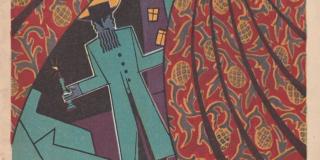
Letter to Captain Jeremiah Osborne
Aaron Lopez (1731–1782)
Aaron Lopez's Autographed Letter to Captain Jeremiah Osborne
Manuscript on paper
Newport, July 27, 1767
Aaron Lopez, a successful Jewish merchant of Sephardic origin, was born in Portugal into a converso family—Jews who “converted” to Christianity but secretly stayed faithful to Judaism. He epitomizes the early entrepreneurial involvement among the Jews of the Diaspora in the economic development of colonial America. Lopez arrived in Newport, Rhode Island, with his wife, daughter, and a younger brother David in 1752, following in the footsteps of his older brother Moses, who came to America in 1741. Until 1765, Aaron Lopez’s business was mostly limited to the spermaceti candle trade along the American shores, but he later began extending his commercial interests to the West Indian coast, which, sadly, included the slave trade, and Europe (England and Portugal). He also invested in the building of his own commercial vessels.
In the 1760s, Aaron and David partnered with the brothers Samuel and Captain Jeremiah Osborne (d. 1768). Samuel was the Boston correspondent for the Lopez brothers, while Jeremiah captained Lopez’s vessels. An illustrative example of their collaboration can be found in this letter dated July 27, 1767. Aaron Lopez writes to Captain Jeremiah Osborne: “The ship Pitt now under your command being ready fitted for the seas.” He expresses his confidence in the captain, authorizing him to “dispose of your cargo for the most you can investing its proceeds in good Jamaica fish.” He also indicates that it is to be a short voyage.
The New York Public Library believes that this item is in the public domain under the laws of the United States, but did not make a determination as to its copyright status under the copyright laws of other countries. This item may not be in the public domain under the laws of other countries. Though not required, if you want to credit us as the source, please use the following statement, "From The New York Public Library," and provide a link back to the item on our Digital Collections site. Doing so helps us track how our collection is used and helps justify freely releasing even more content in the future.






